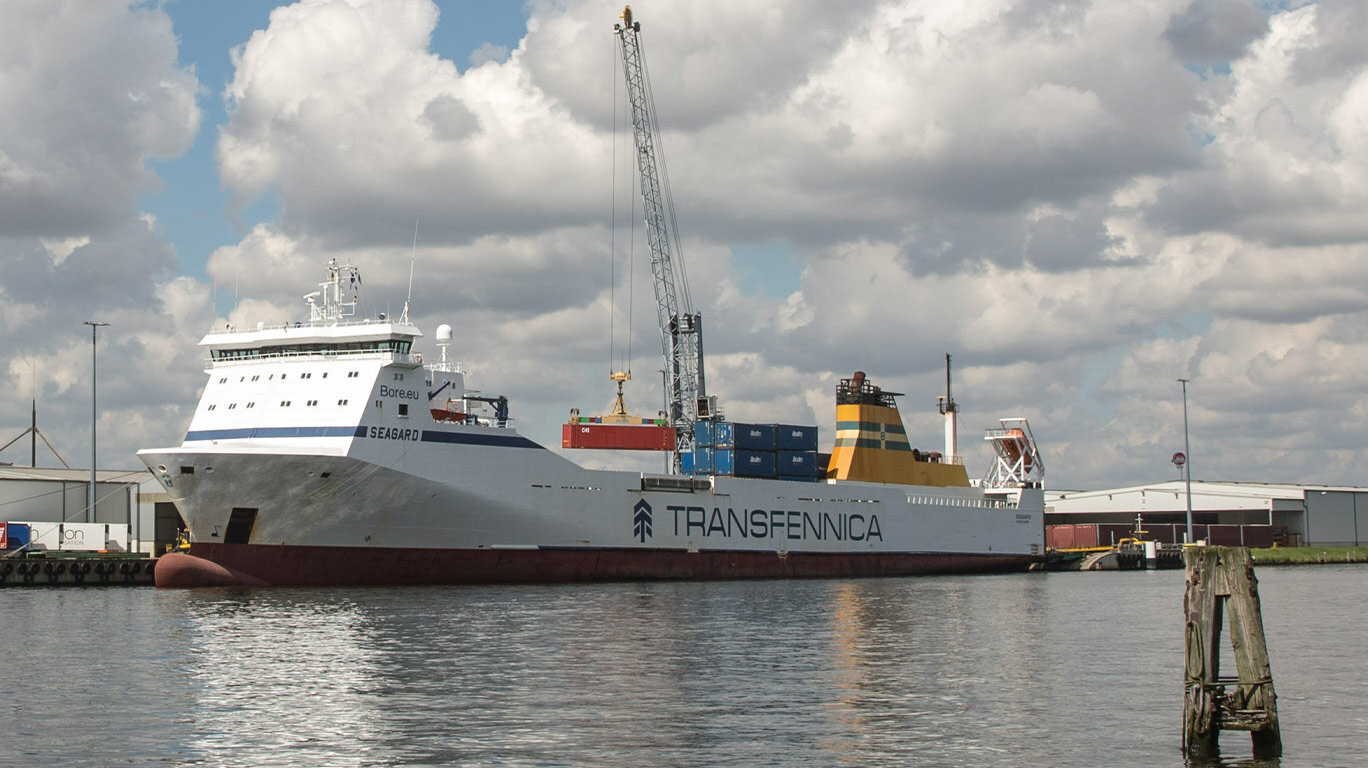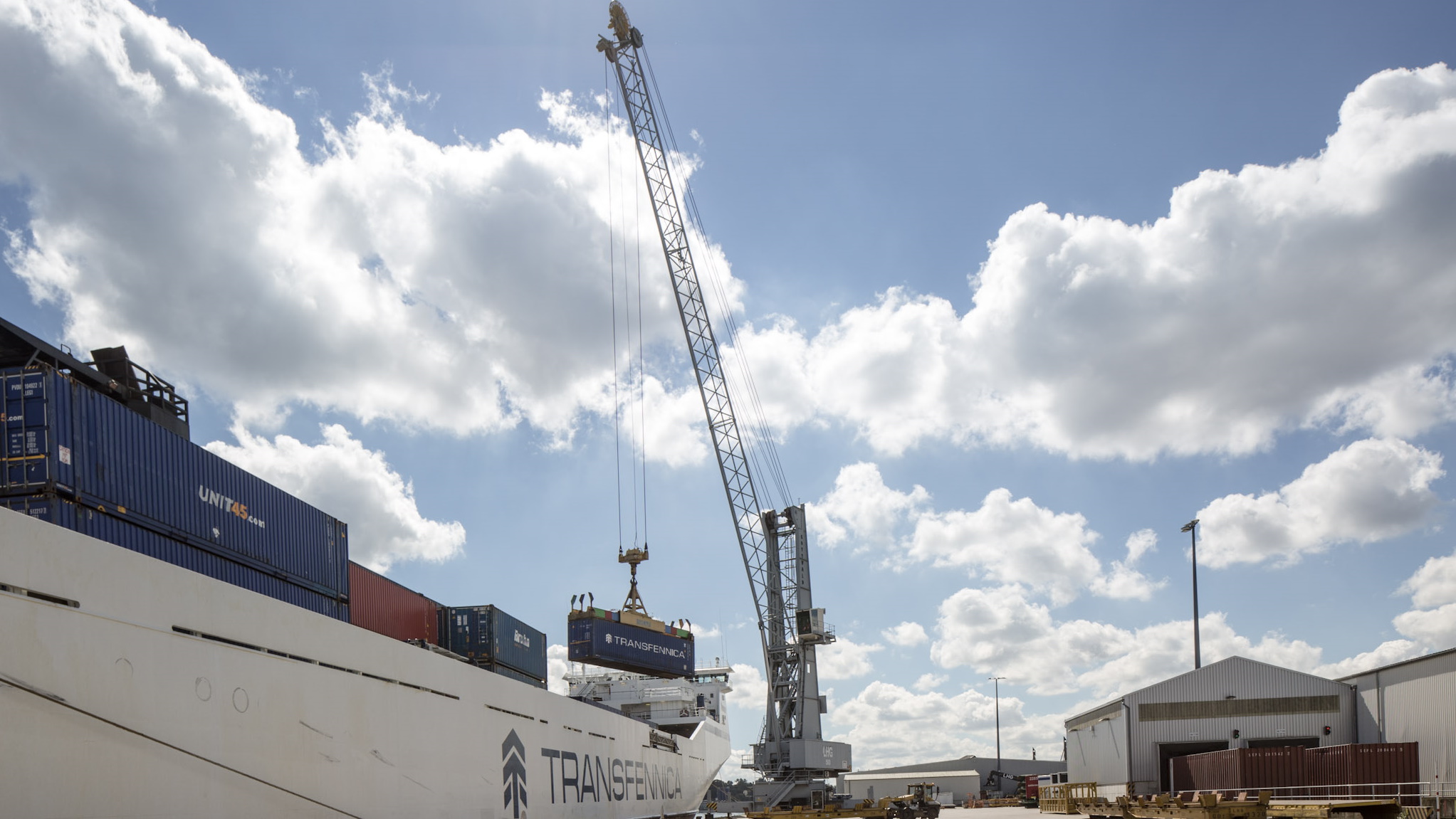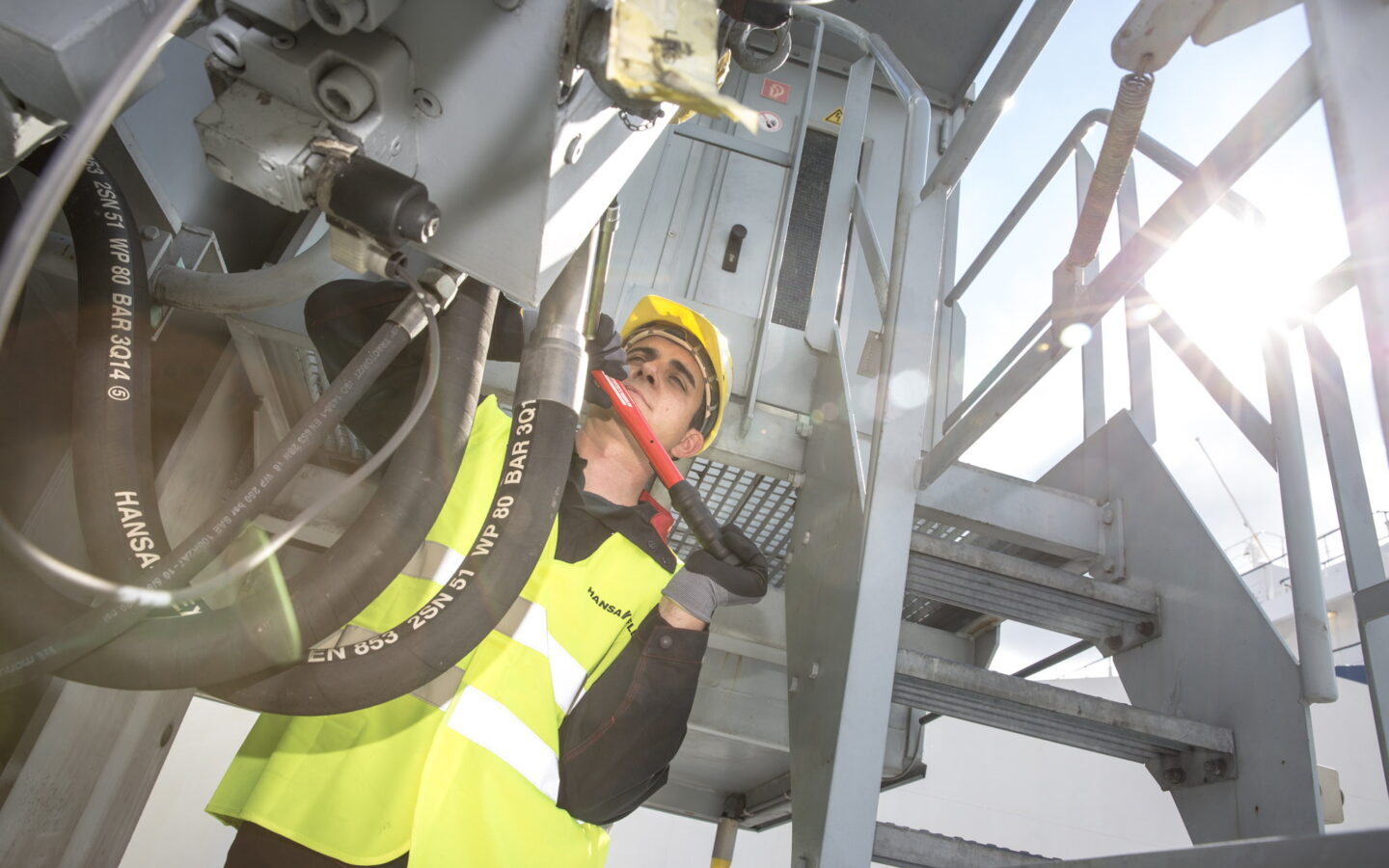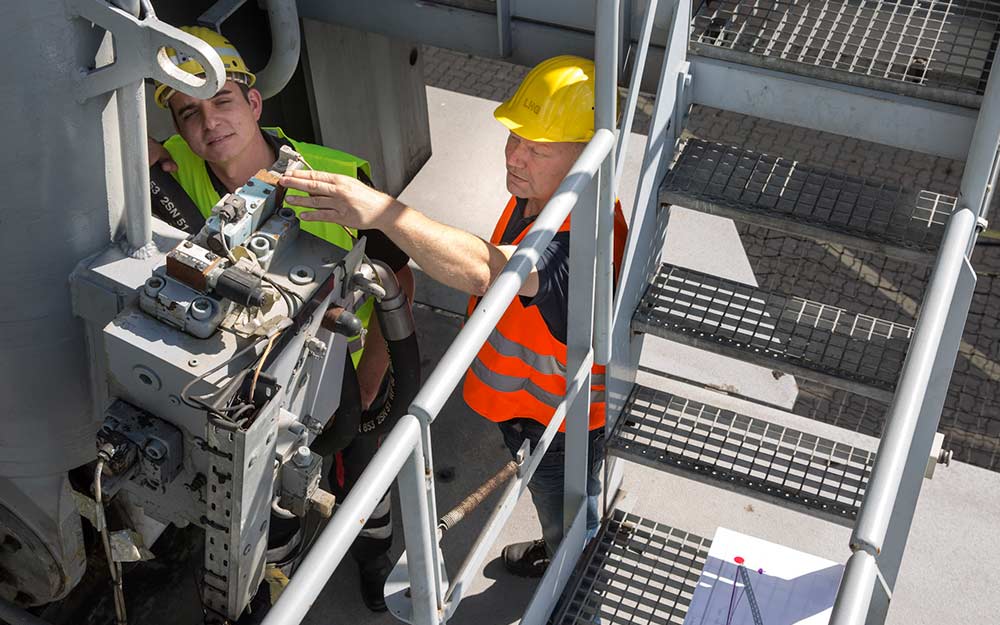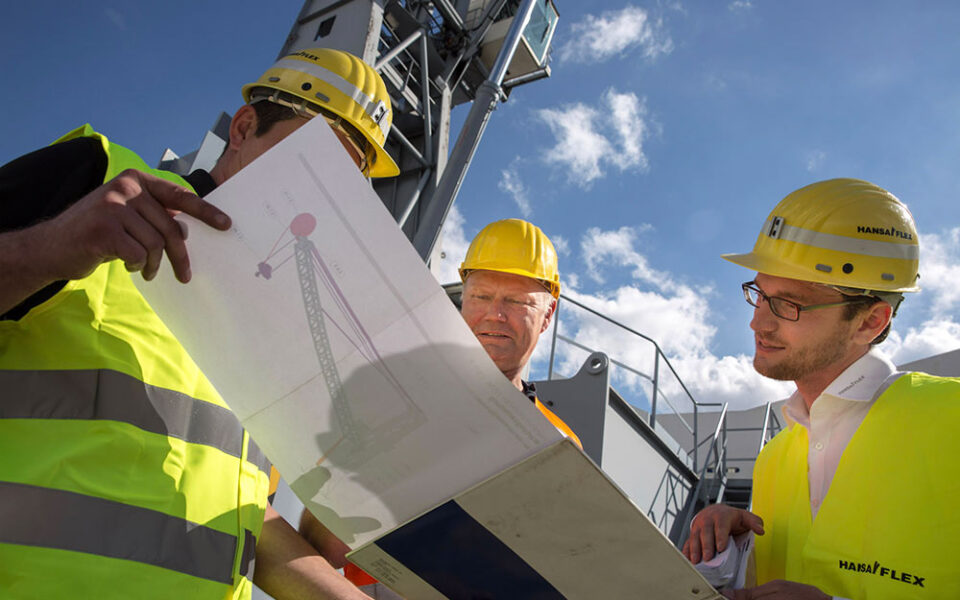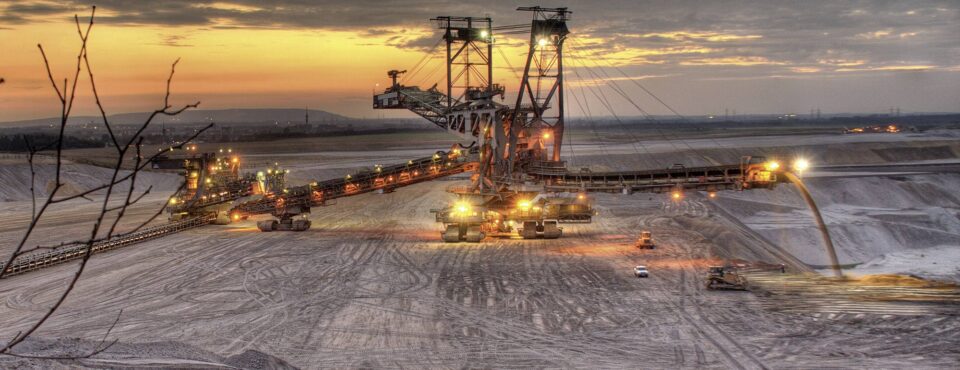HANSA-FLEX repairs the cylinder on a 100-tonne crane for Lübecker Hafen-Gesellschaft

12.03.2024
Restoration of a loading giant
Lübeck port. At the gates to Lübeck’s old town, an enormous crane loads containers onto ships destined for St. Petersburg and Northern Finland. The mobile harbour crane with a hoist capacity of 100 tonnes is the biggest crane owned by Lübecker Hafen-Gesellschaft (LHG) and used on the Nordland dock to lift particularly heavy goods. When the giant’s main cylinder threatened to fail, HANSA‑FLEX took charge of the repair.
The lifting device on the crane’s boom swings out over the ship’s deck like an angular gripper hand. It docks on the container with ultimate precision, lifts it from the ship over the dock wall and places it on the back of the tugmaster, a tractor that transports the goods to the warehouse. With the next load already waiting, both precision and speed are required. Port operations depend on the ability to reliably use all devices. When the lift arm’s nine-metre-long cylinder started to leak at the start of the year, speed was therefore of the essence. Only very few service providers can quickly repair a cylinder of this size. “This kind of work requires experience, trained personnel and the right machinery, as we had to use cranes to remove the piston due to its sheer size”, explains Holger Fehrig, Head of the Cylinder Service department at HANSA‑FLEX in Königshofen. HANSA‑FLEX returned the repaired cylinder to LHG within a week
Precision solutions
HANSA‑FLEX has been working with LHG for 16 years. From hoses to ball cocks to valves, HANSA‑FLEX supplies LHG with all the components it requires for its hydraulic systems.
A reliable partner like HANSA‑FLEX is essential for LHG’s port operations, which combine several different services. LHG operates four port terminals along the Trave River (the Scandinavian dock, Nordland dock, Seeland dock and Schlutup). Technical services, storage, real estate, handling, haulage and transport – LHG offers everything from a single source. On request, the LHG Group will therefore take responsibility for the organisation, performance and monitoring of the entire supply chain from the loader to the recipient. However, if you are looking for the typical stacks of containers that you would find at other international ports, you will do so in vain: the various load types are moved around and stored at the LHG terminals. For example, on the Nordland dock, the crane described at the start of this article heaves huge loads that would be too large for lorry or rail transport onto ships. They can then be shipped onwards via the Elbe–Lübeck Canal.
The devices are serviced by an experienced team. External service providers help keep the logistics chains running. “By working with HANSA‑FLEX, we can maintain the smooth workflows required in all modern ports”, summarises Jens Maack, workshop manager at the Nordland dock. “HANSA‑FLEX’s speed and flexibility when it came to repairing the cylinder have further solidified our long-standing relationship.”
Heavy loads
Generators, machine components, giant excavators and even diesel locomotives or entire hospital modules: it takes extremely heavy equipment to lift such loads. The loading crane at the terminal weighs 400 tonnes and must therefore only be used on particularly solid ground. The hydraulics must be able to withstand the high pressure created when lifting the load and work reliably when holding it. Prior to the repair, the cylinder still used seals from the manufacturer, which represented the latest technology at the time of manufacture. During lifting processes, the pressure created between the seals was greater than that in the cylinder itself. As a result, one of the seals in the cylinder area was compressed and oil seeped between the two seal elements. The diagnosis: drag pressure. Today, more advanced technical solutions are available. “We faced the challenge of finding a material that is suitable for both the high pressure and low pressure areas – a pressure range of between 20 and 200 bar”, explains Fehrig. “If you only optimise the seal for the high pressures, leaks could occur.” The requirement was fulfilled by a combination of Teflon (PTFE) and reinforced nitrile rubber (NBR). It was also necessary to repair damage to the piston rod. This was done using a special brush electroplating procedure. This involves the rapid, moving application of electroplating metal to restore the finish on machine components.
Intense time pressure
“Prior to the planned repair, the port company had already taken the crane out of service”, Fehrig reports. “The job was therefore extremely urgent. At the same time, the cylinder dimensions posed a challenge for us.” The piston has a diameter of 420 mm and the piston rod is nine metres long by 340 mm thick. Repairing a piston rod of this size and the respective cylinder is both complicated and time-consuming, but HANSA‑FLEX had to carry out the work in a very short time: “We worked in three shifts: we dismantled the cylinder, serviced it and tested it multiple times. Parallel to this, we also worked on the piston rod and seals.” This close and swift cooperation between HANSA‑FLEX’s Seal Technology and Cylinder Repair departments makes the company unlike any other in its industry.
Learn more
- 12.03.2024
Airport operations
HANSA-FLEX is the top hydraulics partner at London’s Heathrow AirportFind out more - 12.03.2024
A demolition giant in action
Plannerer Holding AG relies on cooperation with HANSA-FLEX to optimise the 30-metre excavator armFind out more - 12.03.2024
Masters of the soil
Hans Wübben GmbH tills and retills agricultural and forest land.Find out more









































